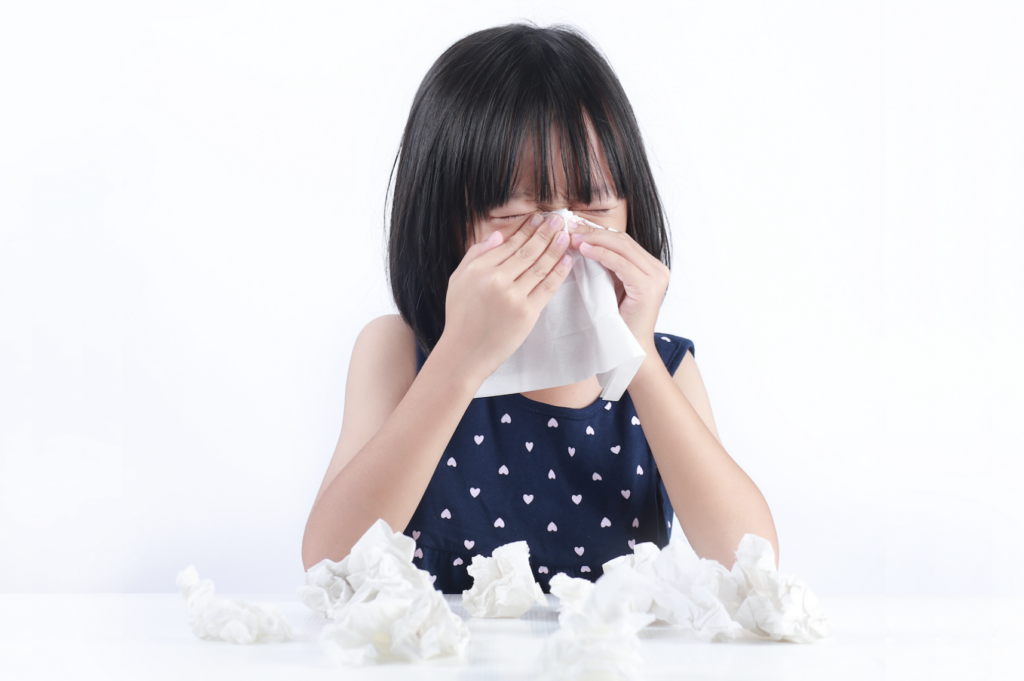










































Written by: Yeung Ming Ha, Registered Chinese Medicine Practitioners
This summer is really “hot and heavy”! In the face of the alarmingly high temperatures, families always want to stay in air-conditioned rooms. In addition to the increase in cases of heat stroke, many patients have “cold” symptoms, suffering from air-conditioning disease. Because the hotter the weather, the more likely to covet air conditioning, when out of the air-conditioned room, equivalent to a seasonal temperature difference, in this “hot and cold” situation, it is prone to catch a cold.
The most suitable temperature for the human body is 24.5 degrees to 25.5 degrees, but many office central air conditioning is often set at between 15 ℃ and 20 ℃. When working staff have to sit in the office for 8 hours a day, students stay in the classroom for a long time, they will suffer from “air-conditioning sickness” when they are exposed to low temperature for a long time. The symptoms include headache, dizziness, easy fatigue, nasal allergy and runny nose.

Moreover, prolonged exposure of the respiratory tract to dry and cold air causes continuous loss of mucosal moisture, and cold air causes microvascular constriction of the mucosa and reduced glandular secretion, resulting in a drier respiratory mucosa. Not only does it produce a dry and itchy throat, but it also aggravates nasal allergy. The following are some of the my tips for effective prevention of cold weather illness.
If the air conditioning vent is facing the head, it will stimulate the head. The head is the meeting of all the yang, cold condensation will make the flow of qi and blood blocked, “blocked then pain”, resulting in headache. Even worse is the direct blowing of air conditioning, causing many chronic pains, such as arthritis, knee pain and lumbago, etc., which are then aggravated. The easiest way to keep warm is to avoid being blown directly by the air conditioning and to wear more warm clothes. Before entering an air-conditioned place, you can rub your hands together to warm them up and then cover your nose to avoid the cold air from entering the nasal cavity directly, which will stimulate the nasal mucosa and induce nasal allergy. In addition, you should wear a shawl or a thin jacket to avoid head and neck pains caused by air conditioning.
People often eat snacks in the afternoon to refresh themselves. It’s suggested eating more foods such as red dates, brown sugar, peel and ginger water, these foods not only do not cause fat, but also promote blood circulation. If you are not suffering from allergic rhinitis and want to relieve dryness in the respiratory tract, you should drink more plain water or honey water on weekdays. You can also drink a tablespoon of brown sugar and three slices of ginger in hot water for 20 to 30 minutes. You can also eat fruits that are more nourishing, such as pears, because they nourish the lungs and stomach, quench thirst and nourish the skin.

For those who suffer from allergic rhinitis, this tea can be used to relieve air conditioning.
Ingredients: 3 grams of Chinese ears, 12 grams of catkins, 6 grams of peppermint and 9 grams of almonds for tea therapy.
Directions
Step 1: Put the ingredients into a tea bag, add warm water at 90 degrees, and bake for 15 minutes.
Step 2: Diffuse the nose with steam for about 1 minute, because the essence in it contains the volatile oil of peppermint, which has the effect of clearing nasal congestion. After the drink is warmed up, it can be consumed.
Efficacy: Peppermint, Cang Er Zi and Catkins are all in the lung meridian and have the effect of dispelling wind and clearing the nasal orifices. Almond has the function of keeping the lungs smooth and moistening them. The combination of these herbs can effectively reduce the symptoms of nasal allergy.
On weekdays, you can use your fingers to press or pat the Yongquan point on the bottom of your feet, which is also known as the “longevity point” and can stimulate blood circulation throughout the body, making your body warm and relaxing to sleep. In addition, the navel and three inches below the location are some points to strengthen the body and Qi, such as Qihai and Guan Yuan. In addition, warm water bags to warm the abdomen, also has the effect of cold to prevent disease. And often to sit in the air-conditioned room, try not to maintain the same sitting posture for a long time, usually may wish to do some simple stretching movements, so that blood circulation, so that the body naturally warmed up.